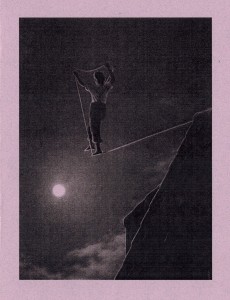Learned Happiness
Learned Happiness, that is, the skill set required to cultivate happiness, has been a focus and study of mine for decades. I have designed strategies, techniques and resources for teaching the cultivation of health and well-being. Whether you are suffering from loss, depression, stress, helplessness, hopelessness, addictions, trauma, insomnia, anxiety, anger, meaninglessness, isolation, relationship challenges, or a deep lack of self-confidence and self-esteem, I can offer you a variety of ways to resolve your suffering and experience clarity, perspective, a purposeful path, and peace.
“Happiness is not a state to arrive at, but a manner of traveling.”
Many mistaken, misguided, or irrational beliefs about happiness influence dysfunctional behaviour, emotions, and thoughts, often with insufficient awareness of these erroneous beliefs. Clearly identifying fundamental beliefs is essential to the cultivation of Learned Happiness. Health and happiness, to be sustainable and enduring, require education.
Happiness, like the sun, is a life-force we all share. It glows in all of us equally, just as the sun shines on each of us without preference. We can choose to recognize the effects of the sun everywhere, regardless of whether or not it is directly visible to us, and this is true for happiness as well. When we learn about and experience happiness that is deep, enduring, and pervasive, we can then choose to fully embrace the life-giving, rejuvenating and nurturing qualities available to us. Our experience of happiness can suffer from obstructions just as clouds can obscure the sun, potentially creating places inside ourselves that are stunted or dormant from lack of warmth and nourishment.
Like the sun, it is essential to our well being that we understand the presence or absence of happiness in our lives. We do not always confront happiness head on, but it is nonetheless implicit in our decisions and undertakings, the ordering principle of our choices. We often think that we know what happiness is, but the pursuit of happiness may be at once the simplest and most vexing of human endeavours.
Learned Happiness is cultivated from self-awareness; thereby making choices that result in, and flow from, a deeply held sense of the happiness that is common to all of us. How do people learn to be happy? The process for learning to be happy begins with an understanding of happiness more expansive than our usual day-to-day and common recognition of it.
“Will not the knowledge of happiness, then,
have a great influence on life?
Shall we not, like archers who have a mark to aim at,
be more likely to hit upon what is right?” Aristotle
Happiness, like archery, is a learned skill, acquired with knowledge, practice, reflection, and persistence. If the target is in awareness, the center becomes accessible. Indeed, recognition of the central mark permits choice for reflection on the aim, observation of the pattern of attempts toward the targeted mark, and the learning for making adjustments to improve skills as we endeavour to reach the desired outcome. Sensations, behaviour, emotions, and thoughts are impulses toward happiness, but none of these are happiness in and of themselves. There is the potential in these attributes to be impulses away from happiness as well.
I have developed a theoretical and practical model of learned happiness designed specifically for adults. The model of Learned Happiness I created merged two fields of study: the conceptualization of happiness and transformational learning. Both are approached from perspectives of philosophy and psychology and are shown to be convergent rather than divergent.
“What keeps us unhappy and stuck in a limited view of reality is our tendency to seek pleasure and avoid pain, to seek comfort and avoid discomfort.” Pema Chodron
We have a tendency to seek happiness in the wrong places. My hope is that this model of Learned Happiness continues to deepen understanding of happiness, thereby increasing its accessibility, as well as providing practical application to therapists, psychologists and educators.
“Growth requires change,
and with growth there is pain,
but it is short lived compared
to living every day
with the pain of ignorance.”
Learned Happiness is an educational journey; one that is instructional in providing the tools for developing an open mind and an open heart; open to everything that life offers.
“Happiness is a way of interpreting the world.” Lilli Ruth Rosenberg
